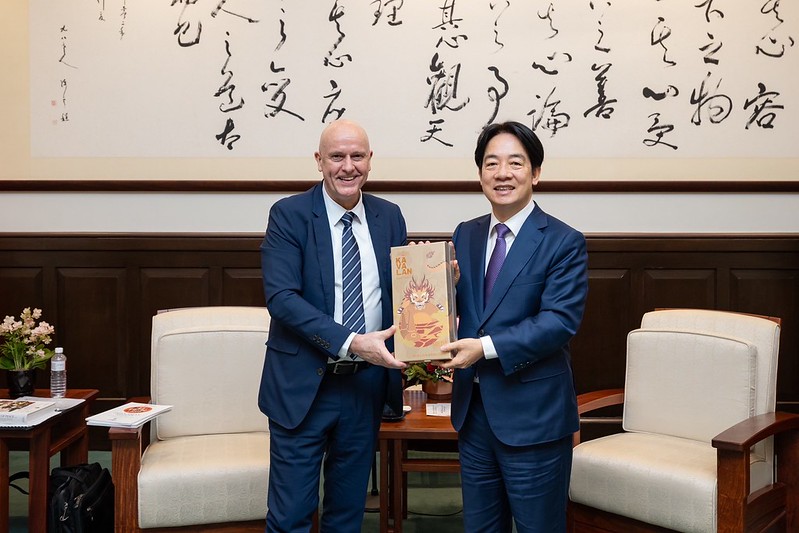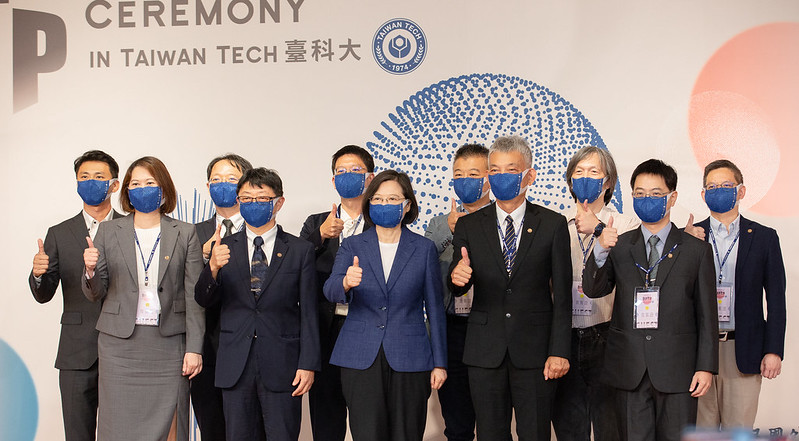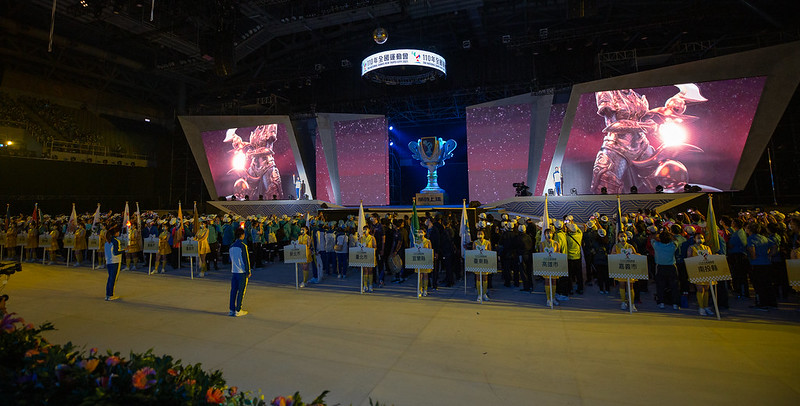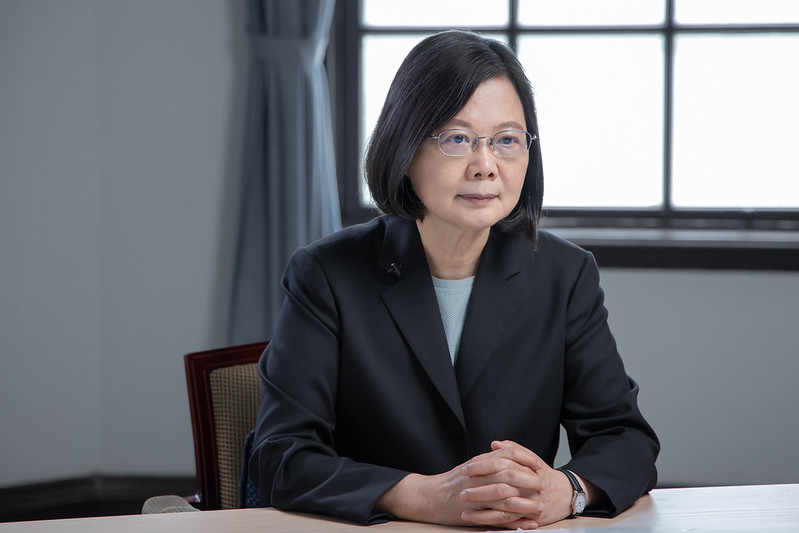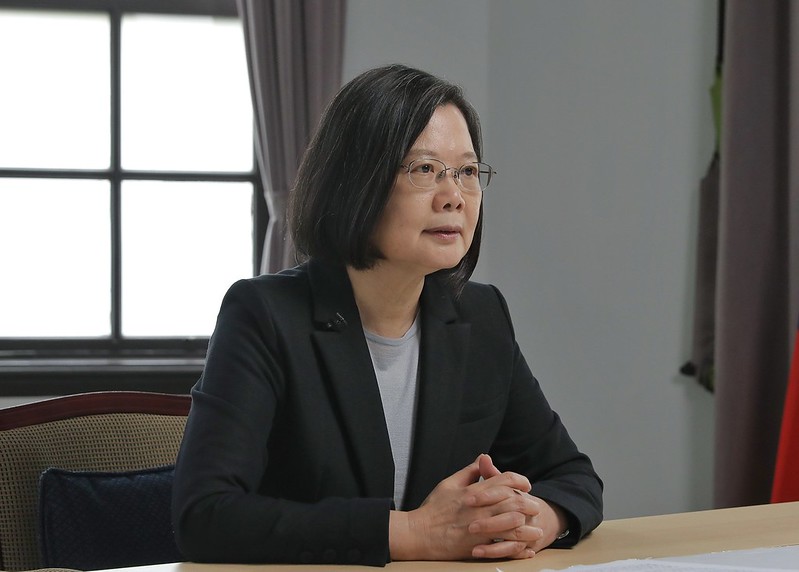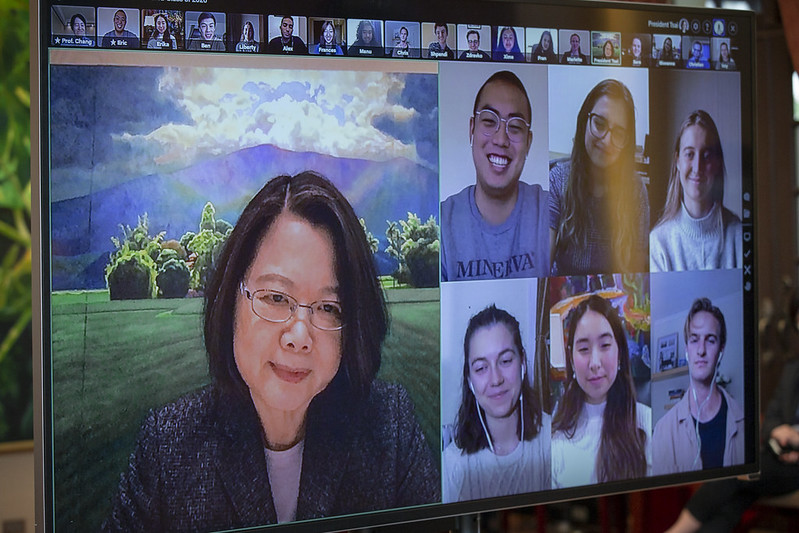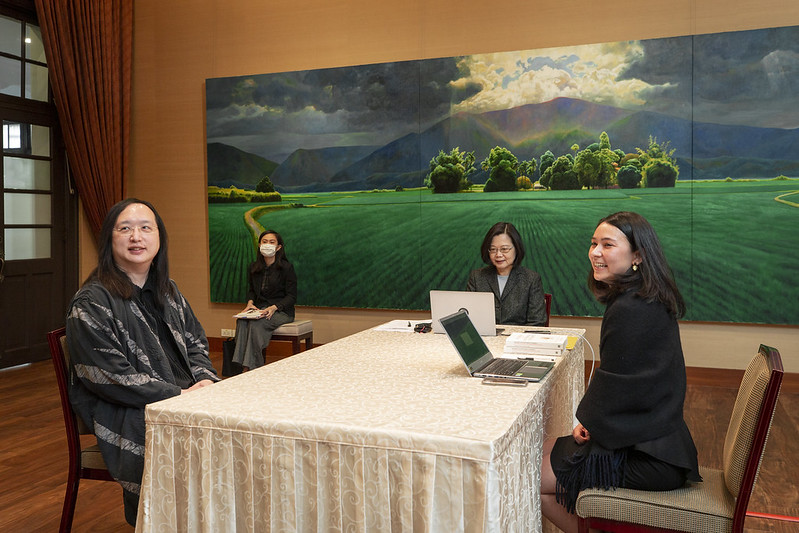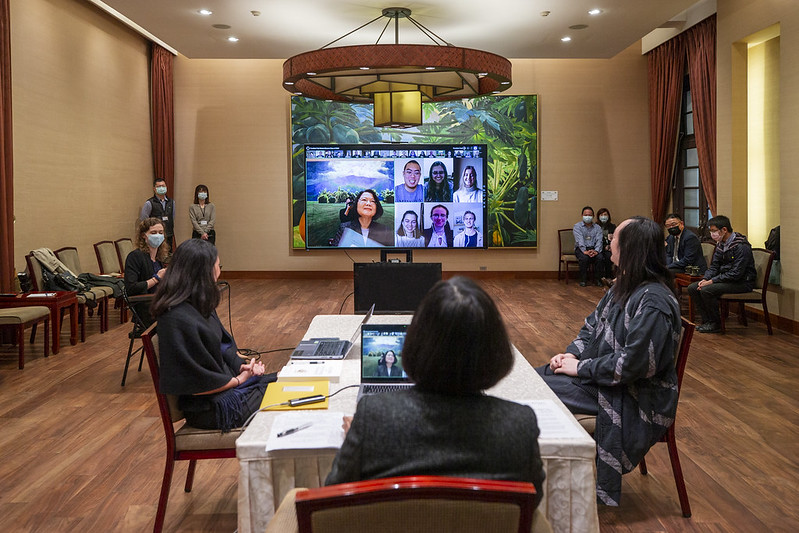News & activities
 News releases
News releases
President Tsai Ing-wen attended a videoconference with 19 graduating students from the Minerva Schools at KGI (Keck Graduate Institute) on the morning of April 6. She shared Taiwan's experiences in fighting the COVID-19 outbreak and encouraged students to face and take on challenges in this changing world.
This is also the first time since the outbreak of the COVID-19 pandemic that, in line with current social distancing rules, President Tsai has received guests online. The Minerva Schools uses cities around the world as its classrooms, and it does not have a physical campus. Beginning in the second semester of their first year, students move to a new city each semester, including San Francisco (United States), Hyderabad (India), Seoul (Korea), Buenos Aires (Argentina), Berlin (Germany), London (United Kingdom), and Taipei (Taiwan). Minerva is known for conducting its classes entirely online, and during the meeting, President Tsai and the students used the interactive learning platform used by students for daily schoolwork, Minerva Forum.
The president stated that she was delighted that Taipei was included as one of Minerva's three destinations in Asia, and she expressed confidence that their education experience will be enriched by their time in Taipei.
President Tsai mentioned that the Minerva Schools students were in Taipei at a challenging moment. As we witness the catastrophic impact of the coronavirus on humanity around the world, she pointed out that the students may have noticed that Taipei offers a relatively safe and healthy environment. Aside from the countless efforts of our medical and public health professionals, she stated, a number of characteristics of Taiwan stand out as factors that have contributed to, until now, the unique relative success of Taiwan in facing the current global crisis.
The president pointed out that Taiwan developed an affordable healthcare system with a national health insurance program available to all residents, including foreign nationals working and studying here. Taiwan is a young democracy, she continued, and we have very well informed citizens who are interested in participating in public policy debates. While in recent years our society has been infiltrated with disinformation and fake news, she said, we have collectively begun to build legal mechanisms to counter harmful disinformation. Throughout the pandemic crisis as well as under normal circumstances, the Taiwan government tries to be as transparent as possible as well, she stated.
The president further pointed out that we have organized a "Team Taiwan" that in two months has brought daily production capacity for face masks from two million to nearly 15 million. This success shows that the public and private partnership in Taiwan is very strong, and people are inspired to make contributions to meet the challenges brought by COVID-19, she said.
President Tsai also mentioned that Taiwan is a diverse society. People have their own political preferences or inclinations, but we are developing a sense of unity as a nation. External pressures to isolate Taiwan politically, she said, have not stopped Taiwan from demonstrating humanitarian concern for others. On behalf of the people of Taiwan, the president continued, she announced last week our plan to donate masks and supplies to hard-hit countries as a gesture of humanitarian concern.
The president also shared her experiences as a student at Cornell Law School and the London School of Economics and said these experiences gave her a deeper understanding of foreign cultures and how different countries handle difficult issues. She stated that these experiences proved a great help in her career as a trade negotiator and in her time as president. She also encouraged the students to face and take on challenges without fear.
President Tsai also gave advice to the graduating students, stating that in a changing world, students are facing a very different job market and challenges that they have never experienced or been taught how to respond to at school. This is a very challenging time, she said, but she expressed confidence that they can afford to make mistakes and fail while they are young. She stated that they can have all the flexibilities and accommodations that people will give them so that they will not lose their confidence. Finally, she encouraged them to face and be unafraid of challenges so that they can mature.
